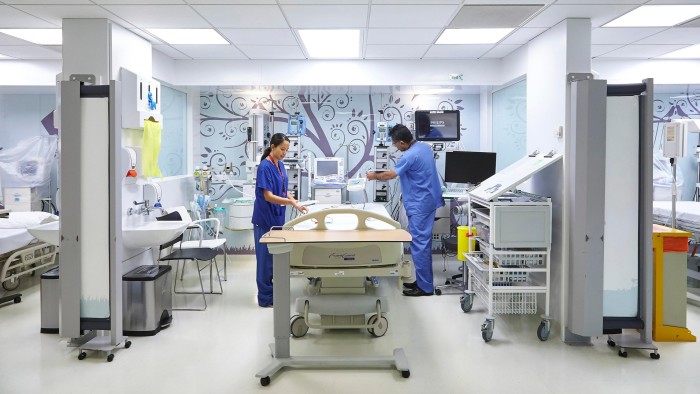Unlock the Editor’s Digest for free
Roula Khalaf, Editor of the FT, selects her favourite stories in this weekly newsletter.
The writer is the City editor at FT Alphaville
Early last year, without warning, some of my head fell off. There’s a reason for me telling you this, here, among the adverts for watches and wealth management, but it’s going to take some explanation.
When writing for this column, I set myself two rules. The first is to always pay my way: every travel ticket, every membership fee, every martini. Accepting media freebies might allow me more opportunity to role-play among the carefree rich but, once money is no concern, it’s hard not to develop a lazy ambivalence to value.
My second rule is to remember that I’m a tourist among natives. What interests me about wealth will, to many readers, seem unremarkable. It’s probably because they live here and I’m just visiting.
Excuses to live beyond my means rarely happen by accident, but rules are rules, so head trauma presented too useful an opportunity to pass up. Some crud had crossed the blood-brain barrier. It wouldn’t kill me, probably, but the longer it was left untreated, the more likely it was to drift around my hippocampus, erasing childhood memories and song lyrics.
The NHS waiting list to begin treatment was six to nine months. My options were to wait and gamble, accepting that I might lose recall of all the words to “Bohemian Rhapsody”, or I could jump the queue by going private. Reluctantly, I chose option two.
For a sizeable minority of Britons (and nearly everyone living elsewhere without free healthcare), the answer may have been a lot simpler. About 14 per cent of the UK population has medical insurance and, of private treatments delivered, around one in four is self-funded. Lengthening NHS waiting times since the pandemic have made paying your way seem a lot more like a necessity.
But among my people, the hair-shirted, going private is unacceptable on principle. Jumping queues is antisocial. Seeking to prioritise your own needs over those of others would be vulgar. Ability to pay was irrelevant. By privatising yourself, you become complicit in the defunding of a social safety net.
Recommended
I stood firm on these convictions right up until they were tested, at which point I buckled immediately and defected to the bourgeoisie. Private healthcare will be my most extravagant discretionary purchase, probably ever. And it will surprise approximately no readers of this newspaper to learn that most of what I’d been imagining was wrong.
Assumptions about self-interest had led me to expect something luxury-coded, or at least luxury-adjacent. What I got instead was a 1970s campus in a Greater London commuter suburb that smelt of cafeteria. It was neater and calmer than any NHS hospital, but only because there was a lot less going on. There was very little evidence of a hospital at all. Mostly it was meeting rooms and a reception desk.
Another thing I hadn’t appreciated was that, for senior medical types, private practice is a side hustle. They work in the NHS or at a university, but for a day or two each week will hire a room and see fee-paying patients. It’s a bit like how hairdressers rent chairs from a salon, but with a much broader range of specialities, which makes it even less like a real hospital. You really don’t want to fall down the stairs on a Tuesday if the broken-bones guy only comes in on a Thursday.
My appointments with the head-crud guy cost about £2,000 per treatment. This bought me exactly 10 minutes of consultation, two of which concerned how I intended to pay, after which we’d schedule an hour in the minor procedures theatre. It was businesslike in every sense of the word.
What my money couldn’t buy was the big flaw with this arrangement. Anything unexpected, such as an accident or a comorbidity, would send me back to the state.
The NHS handled the emergency surgery when procedure number five failed to take. Nothing about the experience could be called luxurious, or even businesslike, but the quality of treatment was no worse. I can say this with certainty for two reasons: it was from the same surgeon, whose regular job happened to be in that ward; and it’s how the Hippocratic oath works.
Was going private worth it? Putting aside all the platitudes about health being the most valuable investment, I honestly don’t know. It was a high price just to avoid a gamble when I’m not even that keen on “Bohemian Rhapsody”. More importantly, it was a gamble I lost.
Luxury services are often, at the core, paying people to treat you better. Healthcare is similar but different. Money will buy haste, time, courtesy and potpourri in the waiting room. Only rarely can it buy a guarantee of better treatment, and it can never guarantee a better outcome. Value is a tricky concept when my story and many like it still have to end on a state-owned operating table, no refunds offered.


